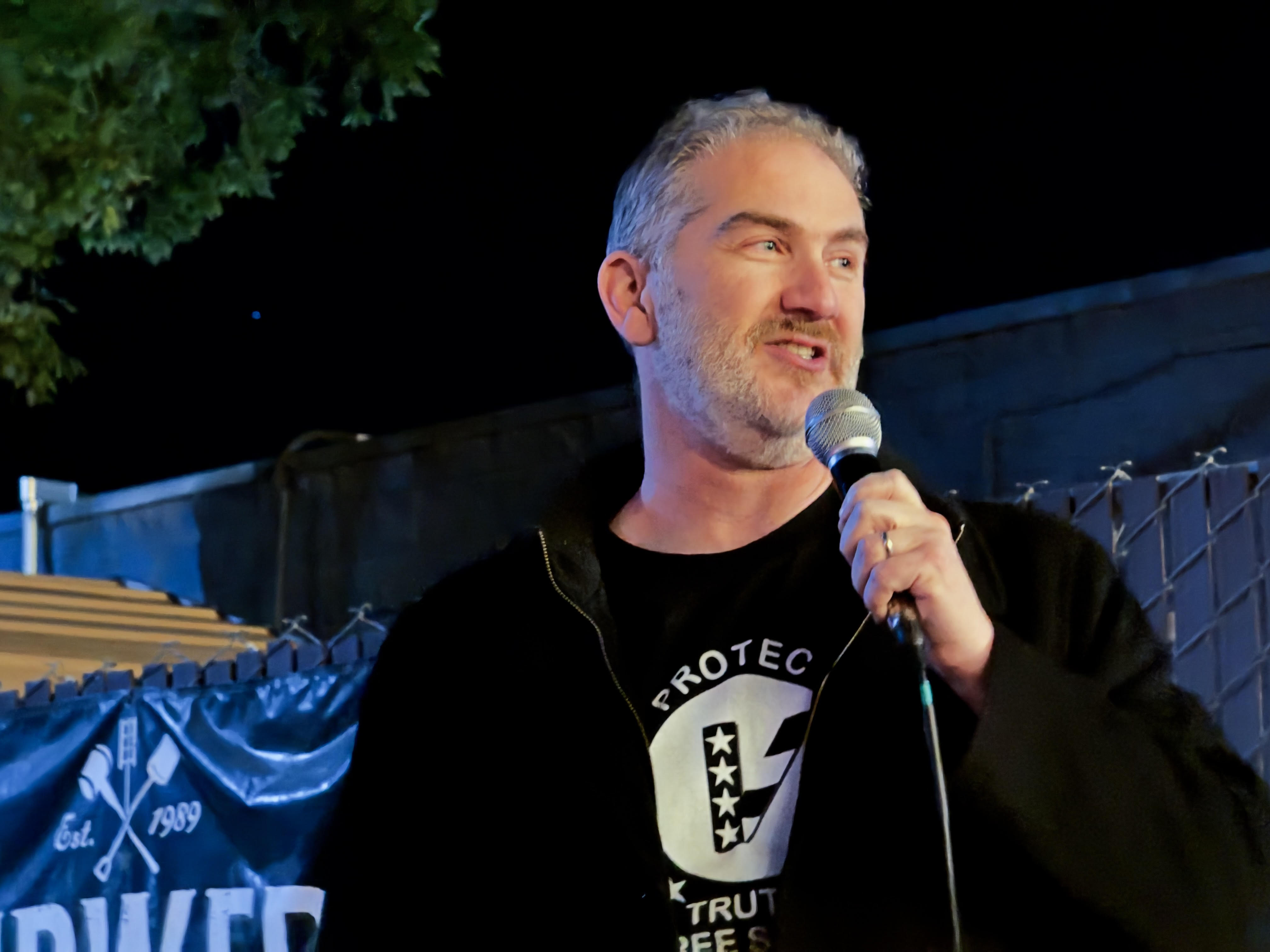

In early March, a Yolo County jury convicted Nan-Hui Jo of a single count of child abduction, following a December hung jury and the recusal of a juror in the most recent trial. At a hearing earlier this month, the prosecutor in the case, Yolo County Assistant Chief Deputy District Attorney Steve Mount, offered a sentence that would allow Ms. Jo to be released.
However, the defense, bringing in high-profile attorney Dennis Riordan, asked for a four week continuance. The problem, from their perspective, was an immigration hold that likely would have resulted in the deportation of Ms. Jo.
Mr. Riordan is among the best known defense attorneys in the state, having represented, among others, Barry Bonds, O.J. Simpson and Lodi terrorism suspect Hamid Hayat. Mr Riordan has now filed a motion to set aside the verdict.
Mr. Riordan in his motion notes the disconnect between the Jesse Charlton who appeared before the jury and presented his current desire to be a good father, and the one who existed in 2008 and, among other things, neglected his responsibilities with Ms. Jo, lied on his response to her petition for child support, used her computer to watch pornography while tending to their daughter, refused to marry her when her visa expired, and admittedly physically assaulted her.
Mr. Riordan writes, “There also is a third narrative at play here, as there always is in child custody disputes. (The daughter) is the party whose interests should be paramount in this case. The trauma she has endured as a result of this prosecution is heartbreaking.” He writes, “Were Ms. Jo’s conviction in this matter to be sustained and she deported as a result, (the daughter) might never see her mother again.”
Mr. Riordan notes, “Not surprisingly, two juries have struggled in considering Ms. Jo’s guilt or innocence. The first jury in December of 2014 could not reach a verdict. The second did so only after contentious deliberations during which the Court took the rare step of dismissing a juror.”
Dennis Riordan argues that the prosecution here raised extremely complex issues of both state and federal law and, “The Court received little advice on the relevant law from counsel for the parties in framing and resolving those issues.”
Most importantly he argue, “The controlling legal framework for virtually every aspect of this case was provided by the California Supreme Court in 2006, yet defense counsel never cited People v. Neidinger (2006) 40 Cal.4th 67 to the Court, and the prosecution’s one-line throw away description of the Neidinger holding was entirely specious.”
As a result, he argues, “Ms. Jo’s second trial was marred by multiple, serious legal errors.”
To begin with, Mr. Riordan argues, the offense requires “malice” and he argues that “[t]he Court altered the definition of malice provided by Neidinger in order to instruct the jury pursuant to CALCRIM 250… rather than CALCRIM 251…” However, the Bench Note to CALCRIM 250 states that “this instruction must not be used if the crime requires a specific mental state, such as knowledge or malice, even if the crime is classified as a general intent crime.”
Mr. Riordan argues, “Plainly, the Court erred in reducing the definition of malice to the terms of CALCRIM 250. In so doing, the Court effectively eliminated malice as an element of the offense that had to be proven above and beyond the general intent required of every criminal violation in California.”
This is not a small error, because it was the definition of malice that caused the juror to question the legal definition of malice, which resulted in the judge dismissing her.
Mr. Riordan continues, “The Court compounded that error by instructing the jury that a defendant’s belief in the legality of her actions could not constitute a defense. When properly defined, the element of malice is inconsistent with an honestly held belief in the legality of ones action’s.”
“The Court next erred by invoking the sua sponte power to instruct in a context where its exercise is forbidden— i.e., instructing on a defense over a defendant’s objection that he or she was not relying on that defense,” Dennis Riordan next argues.
He writes, “The error here is stark. Defense counsel informed the Court that he was not relying on, or requesting instruction on, the statutory defense of ‘good faith’ provided by Penal Code section 278.7. The prosecution’s written request to instruct under CALCRIM 1252 on the section 278.7 defense was admittedly and expressly designed to defeat the other defense theories upon which Ms. Jo was in fact relying. The prosecution by its instructional request sought to cause the very prejudice to Ms. Jo that the Sedeno limitation on the sua sponte power was designed to prevent.”
He adds, “That is all the more true because the instruction given the jury over defense objection on the ‘good faith’ defense was fundamentally flawed. It required as a condition of Ms. Jo’s establishing a good faith defense that the defendant prove that she promptly reported to a police station and initiated a child custody action.”
He adds, “The prosecution relied heavily on the erroneous instruction setting forth the ‘good faith’ defense in arguing in closing that Ms. Jo’s evidence had to be ignored and she convicted because she had not met the reporting requirements contained in the Court’s instructions.”
The jury asked “whether it could find that malice had not been proven based ‘alone’ on ‘item 2 being in question . . . .’ Item 2 in the CALCRIM 1252 instruction concerns whether the defendant ‘had a good faith and reasonable belief when abducting the child that the child would suffer immediate bodily injury or emotional harm if left with the other person . . . .’”
Mr. Riordan writes that, under Neidinger, the controlling decision, the correct answer to that question was “Yes, malice has not been proven if Ms. Jo has offered evidence that she acted in good faith and the prosecution has not proven the absence of good faith beyond a reasonable doubt.”
However, the judge told the jury that “all five items.. had to be found for the defense to apply.”
Finally, Mr. Riordan argued, “The Court should enter a directed verdict of acquittal on that charge” of the taking in October 2009.
He argues, “As a matter of law, Ms. Jo did not violate section 278.5 before leaving California with (the child) on November 8, 2009. Ms. Jo was required to leave the country at that time to avoid violating federal immigration laws, which under the Supremacy Clause trumped any state court order to remain in the state.”
Mr. Charlton, he notes, “did not have custody or visitation rights with (the child) under a judicial order before Ms. Jo left the state.”
He argues, “There was no malicious taking by Ms. Jo before her departure for Korea with (the child) on November 8, 2009.”
The hearing will take place next week in Yolo County. Ms. Jo remains in custody, however, Mr. Riordan is now requesting that Ms. Jo be released regardless of whether the motion is disposed of fully on April 28.
—David M. Greenwald reporting

this is a real gamechanger. the juror who spoke out made it clear that the jury verdict rested on the interpretation of malice, riordan here makes a strong case that the juror was improperly instructed on malice. he also makes a pretty compelling case that casts doubt on whether she illegally took the child in teh first place. i don’t know that rosenberg will overturn his own decision and admit fault, but this one is in doubt.
“but this one is in doubt.”
Only in the minds of the gullible.
;>)/
i guess… but then again, i see that barry bonds’ obstruction conviction was just thrown out by the 9th circuit court of appeals… http://espn.go.com/mlb/story/_/id/12743113/barry-bonds-obstruction-conviction-thrown-appeals-court
i see here that his attorney… “Bonds’ attorney, Dennis Riordan of Riordan & Horgan, told the 11-judge panel that the circumstances that led to Bonds’ conviction on the obstruction charge didn’t meet the requirements for perjury — and that the standards for obstruction shouldn’t be different. The allegedly problematic statement wasn’t identified in the indictment and it wasn’t a false statement, he said.”
that’s right, the same dennis riordan who is now representing nan-hui jo. so care to bet that i’m the one being gullible?
Your capacity for idealising the mother, her actions and her motives is nauseating. Her actions are calculated and with total disregard for the consequences to others. The fact that she selfishly removed her child to a benighted foreign country, fraught with physical and social challenges, effectively depriving her of her rights as an American citizen, is sufficient reason for me to hope that the verdict stands and the orderly procedure of justice is unimpeded.
;>)/
let’s review that shall we. first, she’s facing the threat of her immigration status expiring and having to leave the country. the first thing she does is try to marry the father, but he declines. they start fighting, he eventually lifts her up by the throat and slams her against the wall. she’s facing the immigration status issue and decides to leave the country. he realizes that she is going to leave and goes to the family court to make a custody claim at the last minute. as the attorney notes, at this point he has never asserted parental rights nor sought a custody situation.
her attorney argues: “As a matter of law, Ms. Jo did not violate section 278.5 before leaving California with (the child) on November 8, 2009. Ms. Jo was required to leave the country at that time to avoid violating federal immigration laws, which under the Supremacy Clause trumped any state court order to remain in the state.”
if that reading of the law is correct, then you’re argument falls apart.
Are all foreign countries benighted to you or only hers? Had she been born in Arizona would you respect her more? Sounds to me like the father is the parasite in this story, and his country isn’t “benighted,” at least not yet. Oink!
I can’t wait to read your list of the advantages of child rearing in Korea. I can’t tell if you are intentionally obtuse or truly ignorant, but, Korea is beset with political and economic instability and has an ancient, but extant tradition of hating mixed race children and foreigners. Without family support, and she apparently didn’t have enough to make it possible for her to stay there with the child, the baby’s chances of a decent life are negligible. Had Ms Jo been born in Arizona, I doubt the child would exist or that Mr Charlton would be involved, at all. She has used the child as a bargaining chip in her bid to get permanent US residency status.
;>)/
Meant as an honest question… there are two Koreas today… do you mean ‘North’, ‘South’ , or both? Yeah, I saw the TV MASH episodes, too.
South Korea.
;>)/